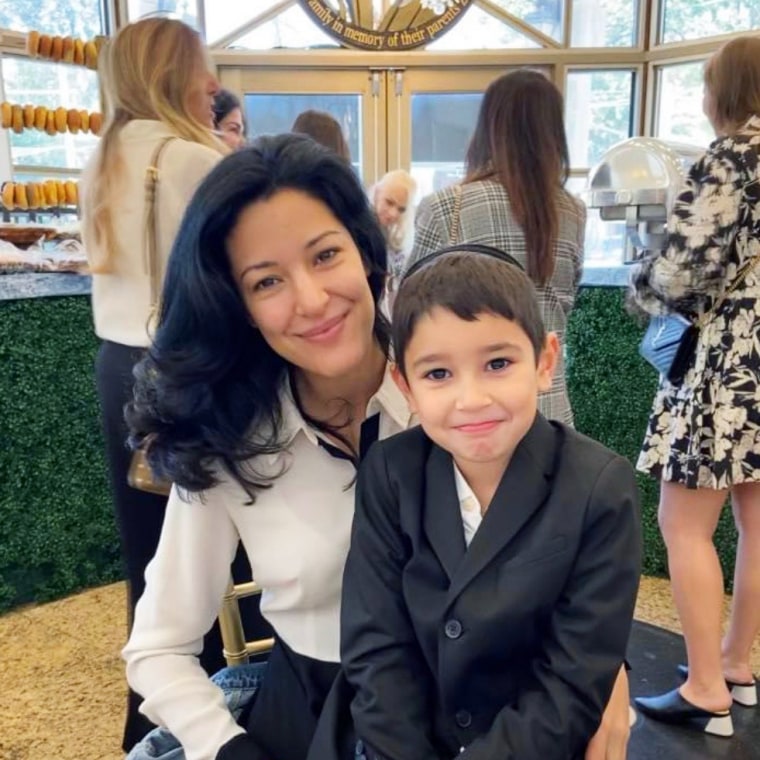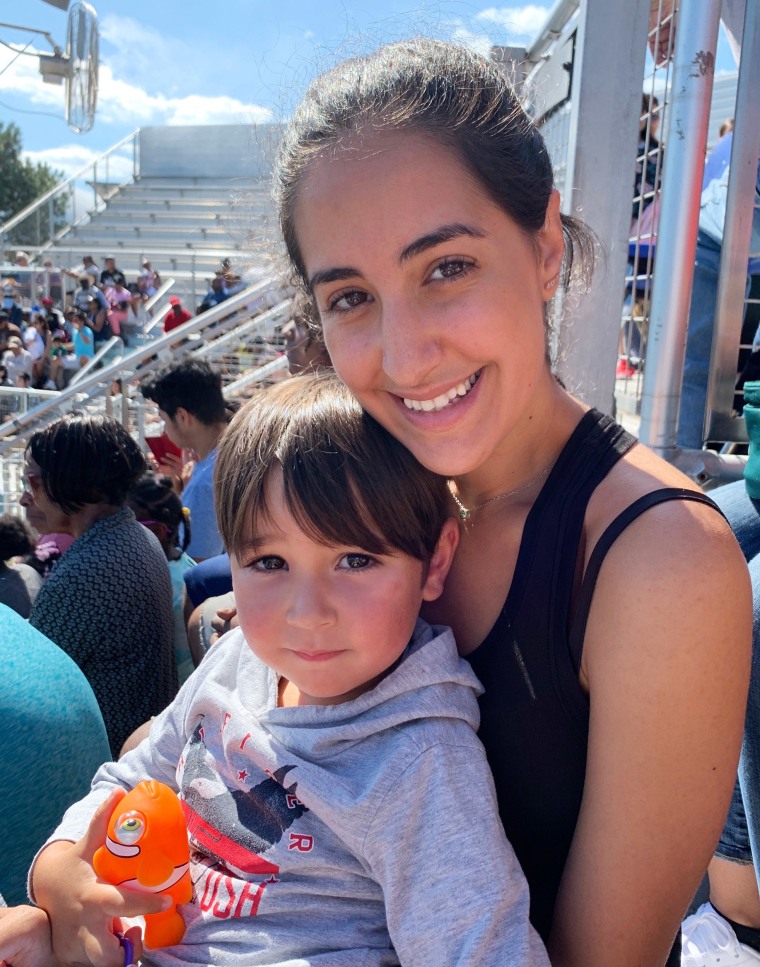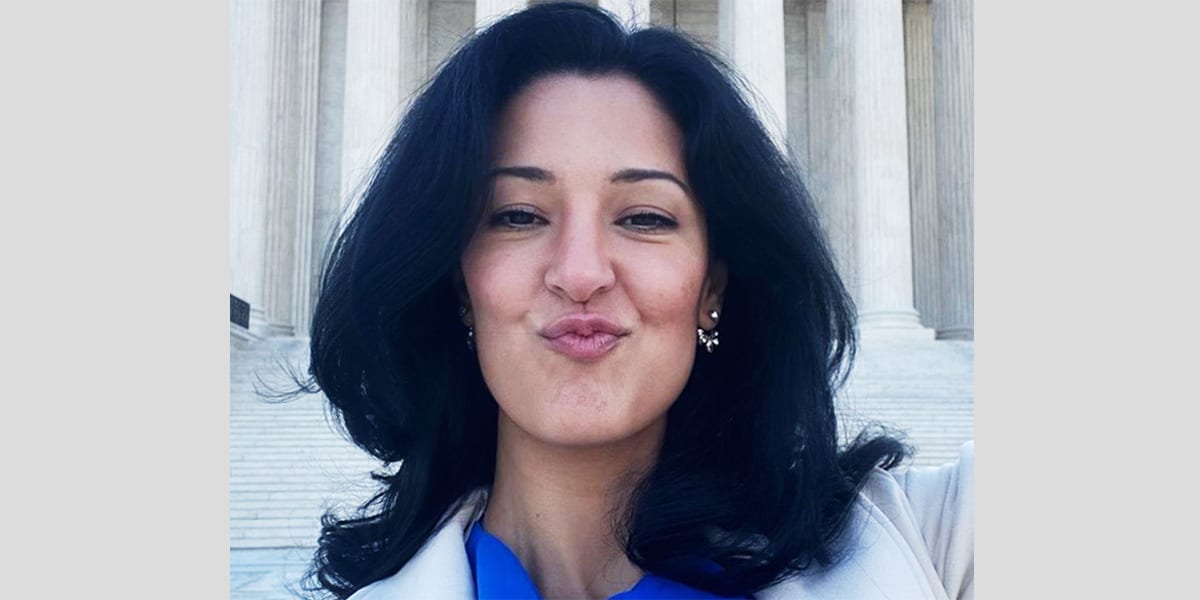The family and supporters of a domestic violence victim whose yearslong custody battle with her abusive husband made it to the Supreme Court this summer are demanding answers after she was found dead in her New York City apartment last week.
Narkis Golan, 32, was found dead in her Brooklyn apartment on Oct. 18, shortly after 8:45 p.m., with “no obvious signs of trauma,” police said.
A spokesperson for the New York City Office of Chief Medical Examiner said Tuesday that the death remains under investigation.
Golan’s sister, Morin Golan, said her death “doesn’t make sense to us.”
“She was very healthy, she had a lot of energy, she was a powerhouse,” Morin said.
Less than two months before her death, Golan posted on Facebook about her ongoing custody battle, ominously writing that many women in similar circumstances “end up dead.”
Her death comes four months after the Supreme Court unanimously decided in Golan’s favor that a lower court did not have to find a way to force her to send her 6-year-old son, Bradley, back to Italy after she fled with him to the U.S. in 2018 to escape his father, Isacco Jacky Saada, who physically abused Golan, insulted her, and threatened to kill her, with much of the abuse unfolding in front of her son, according to the court’s opinion, authored by Justice Sonia Sotomayor.

Golan v. Saada notes that Saada asked a court to return the couple’s son to Italy under the child abduction clauses of the Hague Convention, an international agreement that the U.S. adopted in 1994 to regulate international adoptions.
The convention originally aimed at protecting children abducted by their fathers. But domestic violence victims, advocates and experts say that today, abusers and judges weaponize the clauses to punish women who flee domestic abusers to protect themselves and their children.
“Courts fail to see flight from domestic violence as something that should justify” protection under the Hague Convention clauses, according to Merle Weiner, a professor at the University of Oregon’s School of Law who is widely recognized as an expert on the Hague Convention’s child abduction clauses.
Though there are no definitive statistics, research estimates that domestic violence could be a factor in up to 70% of Hague Convention child abduction cases.
Despite Golan’s win, when her case returned to a lower court, as the Supreme Court decision found it should, a federal district judge ruled that Golan would have to return her son to Italy, arguing that the country was the boy’s “habitual residence” under the Hague Convention clauses and that an Italian court had found and could successfully implement measures to mitigate the risk the boy could face from his father upon his return.
Golan and her attorneys planned to appeal that decision, court documents show.

‘We will be fighting tooth and nail’
While Morin and Golan’s supporters await answers of what caused Golan’s death, they plan to continue her fight to keep her son with her family in the U.S., they said.
Immediately following her sister’s death, Morin filed for temporary custody of Bradley, as well as for orders of protection for both herself and her nephew against Saada, according to her and Nicole Fidler, director of the pro bono program at Sanctuary for Families and a lawyer who had been working with Golan since soon after she arrived in the U.S.
On Nov. 15, a Brooklyn Family Court judge will confirm the current status of the case and its next steps in what is known as a return of process date, Fidler confirmed.
“We will be fighting tooth and nail” for custody of Bradley, Morin said.
Saada’s attorney did not respond to repeated requests for comment.
In addition to fighting for custody of her nephew, Morin said, she plans to “fight for all of the mothers who are currently in this position, struggling to protect their kids and feeling like prisoners.”
“That’s going to be my fight, because that’s what my sister believed in,” she added.

Other women in situations similar to Golan’s agree, including some who are rallying together to raise awareness of and amend the child abduction clauses under a newly-formed initiative called the Hague Mothers.
“We can’t stop her fight now,” said Natalie Bridgeman, 30, a member of the group who spoke with Golan the day she died.
“We’re stepping up, and it’s our turn now,” she added.
The group consists of about 70 active participants across four countries, including lawyers, academics, human rights activists and mothers who fled domestic violence and now face child abduction accusations under the Hague Convention, according to campaign coordinator Ruth Dineen.
Their ultimate goal, according to their website, is to amend the convention and “ensure that domestic violence is properly addressed in all cases and that its impact on the child, along with the impact of potential loss of contact with the primary carer, is fully recognized within the treaty itself.”
‘Her fight inspired me’
From a young age, Morin said, Golan “rooted for the underdog.”
Growing up in a Jewish community in Brooklyn, Golan was strong-willed and sympathetic, her sister said: “She always cared about the people that nobody cared about.”
That sympathy also extended to animals, Morin said: as a child, Morin recalled, her sister brought home a one-eyed hamster from a pet store who she thought nobody else would buy.
Morin and Golan’s other supporters say her character didn’t change even despite the years of abuse she suffered at the hands of Saada, who she married in 2015, according to the Supreme Court opinion. (The two remained married up until her death, because Saada denied her request for a ‘get,’ or a Jewish divorce, according to Morin and Fidler.)
Bridgeman, a member of the Hague Mothers, said that Golan helped her secure pro bono legal representation after she and her two sons, now three and seven years old, fled her ex-husband in Ireland last year. (NBC News could not immediately independently confirm details of Bridgeman’s case.)
“I didn’t even know her, and she did this for me,” Bridgeman said.
The two connected when Bridgeman sent Golan a Facebook message expressing her admiration for her following her Supreme Court victory, Bridgeman said.
“Her fight inspired me, and all of us, really,” Bridgeman said.
Golan was a mainstay in group texts among the Hague Mothers, and regularly connected new members with pro bono legal representation, Bridgeman added.
She also left a legal legacy, according to Weiner, the law professor.
Weiner said that Golan’s case was “important doctrinally, because it helped tell courts around the nation that they need not consider ameliorative measures” — or attempts to mitigate the risk that the child will be exposed to harm — once it found that returning the child would expose them to a grave risk of harm, which is one of the exceptions established under the Hague Convention child abduction clauses.
In doing so, Weiner said, the decision established a child’s safety as the priority.
The practice of searching for “ameliorative measures,” rather than ruling that a child did not have to return home and potentially be exposed to harm under the Hague Convention exception, “had become a big roadblock for survivors” in court, Weiner said.
It remained a roadblock for Golan, even at the time of her death: on Aug. 31 — a little over two months after the Supreme Court’s decision in her case, which ruled that the U.S. District Court in the Eastern District of New York should re-consider the case with the high court’s new ruling in mind — a district court judge determined that the Bradley should be returned to Italy, where she wrote that Italian social service agencies would investigate the family, provide psychological and educational support, and regulate supervised visits between Saada and the child, among other things.
The ruling, Morin said, left her sister “distraught.”
Both Fidler and Weiner criticized the ruling, alleging it did not take into account the realities of domestic violence.
A day after the ruling, Golan wrote on Facebook: “After winning at the Supreme Court, I had to yet again face the same unsympathetic judge who wants to force my son back to a country where I was tortured, raped and abused in every way. There was never justice for me.”
But she didn’t plan to stop fighting, Morin said: “She never let anybody tell her that she couldn’t do something, she never let anybody tell her that something was too difficult,” she said. “She always got through it.”
Golan also hoped, once her custody battle was over, to establish an organization to help protect kids and their mothers from domestic violence, Morin said.
Fidler, Golan’s former attorney, remembers her as “a fighter — not just for her son, but for all Hague moms going through this.”
Source: | This article originally belongs to Nbcnews.com









